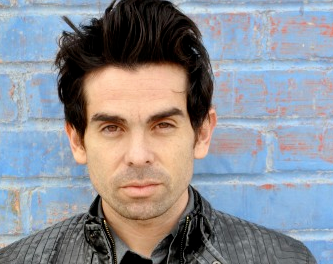Her eyes stayed fixed on the pregnancy test. Two lines or one? The 4 minute timer seemed to be dragging the time with a ball and chain. As the time ticked on Carmen and I talked about her possible pregnancy.
“If the test is positive, what do you plan to do?” I asked.
“Oh I would have to get an abortion,” she replied.
“A lot of women come through our center without being informed or knowledgeable about the abortion procedure. It’s a good idea to do your research and not be in the dark. Have you looked anything up online?”
“Yeah.”
“What did you find? What did you think?”
“It was kind of scary…but I try not to think about it.”
Carmen did her homework and the fear blinded her, she made a decision right then; a decision to look away. Carmen’s last statement is a reflection of our society, we try to not think.
In his book on Philosophy, The Consequences of Ideas, Philosopher R.C. Sproul tells a story about a street sweeper. Sproul was a Philosophy major looking for a summer job in 1959, he was offered work in the maintenance department of a hospital. A coworker surprised Sproul by engaging with him in philosophical concerns and ideas. Sproul was intrigued by a man whose occupation was in sweeping driveways but who was also knowledgeable in Sproul’s field of study. This street sweeper was a Philosophy Professor in Berlin, Germany during World War II, his ideas were at odds with Hitler’s Third Reich so he was removed from his position. When he spoke out against the Nazi’s his wife and children were arrested and executed; he escaped from Germany with one daughter. He no longer taught philosophy because it had destroyed his life. Sproul said, “I was pushing a broom because I lived in a culture that sees little value in philosophy and gives scant esteem to those who pursue it. My friend was pushing a broom, on the other hand, because he came from a culture that gave great weight to philosophy. His family was destroyed because Hitler understood that ideas are dangerous. Hitler so feared the consequences of my friend’s ideas that he did everything possible to eliminate him-and his ideas.”
Where have we gone in our thinking as a culture? What happened to the exchange of thoughts and ideas? The open forums? Speaking out in the town square? Where is the Athenian Acropolis of our time? Are we so afraid of thinking? Is darkness a comfort to us? Philosophers of the past were concerned with finding truth, now we believe truth cannot be found. The tidal wave of post-modernism fueled by the idea of relativism has drowned our society in mud. We reject Meta narrative, words no longer have any intrinsic value or meaning attached to them, and anything goes. To each his own, live and let live is the mantra of our time. Everything is absurd and lacks meaning, such as in Samuel Beckett’s play, Waiting for Godot , where two men banter in nonsensical ways, where their physical actions do not match what they are saying. These two men are waiting for Godot (some literary scholars would say Beckett means God here) but he never comes. In a society where anything goes, there is no right and wrong, where do we end up? Where do these ideas take us? We have rejected any standard; we have no center, no reference point. No meaning, no truth, and only absurdity lead to death in many forms.
The famous Oxford professor and writer, C.S. Lewis wrote a book titled Mere Christianity. This atheist turned Christian philosophizes in his writing about right and wrong as a clue to the meaning of the universe; Lewis appeals in chapter one to the law of human nature. He talks about quarrels: everyone says things like, “How’d you like it if anyone did the same to you? “That’s my seat, I was there first”-“Leave him alone, he isn’t dong you any harm”-“Why should you shove in first?” “Give me a bit of your orange, I gave you a bit of mine”-“Come on, you promised.” Lewis says in all of these statements we are appealing to some kind of standard of behavior, which we expect others to follow. We have rejected this type of thought in today’s culture. The old Philosophers would call this the Law of Nature, meaning the law of human nature and how we are all governed by an internal law that shows us right and wrong; this is the human idea of decent behavior, which was thought to be obvious to everyone. Lewis would say we believe in this law whether we admit it or not: “If we do not believe in decent behavior, why should we be so anxious to make excuses for not having behaved decently? The truth is, we believe in decency so much-we feel the Rule of Law pressing on us so- that we cannot bear to face the fact that we are breaking it, and consequently we try to shift the responsibility.”
Could Carmen’s choice to look away and not think be a suffocation of the Law of Nature? Why would she feel the need to not think about it? What was it about the information she found that caused her to choose to ignore it even though her emotional response was fear? I went on to explain to Carmen the importance of her choice and the possible consequences. I told her that many women come into our crisis pregnancy center in a hurry to terminate the pregnancy, their thoughts and emotions are traveling full speed and their reaction is abortion. Many of these women come back to the center for post abortion counseling, because of the guilt and regret they feel for making their choice. I encouraged her to slow down in her thoughts and emotions and make sure she weighed her options. I encouraged her to research and think clearly and deliberately. We never fully realize how our choices today will affect us down the road.
I shared a true story with Carmen about my sister’s two miscarriages. My sister’s first miscarriage occurred 3 months into her pregnancy and the grief she felt was the same grief a mother would feel if her 3 year old child had died. Why is that? Because the maternal instinct kicks in immediately once the women knows she is pregnant. She knows that’s her child and the loss grieves her. My sister had another miscarriage at 4 weeks and the grief was still present. Our society would mourn with my sister in both cases, because she wanted that child. What if my sister didn’t want the child? What if she went to an abortion clinic and had the procedure done? We know what society would think of this; they would worship my sister for exercising her right to choose. Do we see the contradiction of this thinking? Do we care about the contradiction? What if an armed robber invaded my sister’s house and when confronted he punched her in the stomach and beat her to a pulp? We would stand in horror at the injustice against my sister as her child died inside her. If we think this is injustice, what happens in the abortion clinic? What happens in our philosophical ideas as a culture when we demand justice with an armed robber and mourn through a miscarriage, but we turn our heads and try not to think about what happens in the abortion clinics? We want to save the rainforest, we want to save trees, we want to protect the animals lives, we even enact laws to do this which are good, but what about human life that is developing? We protect the life found in a turtle’s egg, what about a woman’s? Again, where is the standard? Why is it being applied to animal and plant life but not human life?
Does this make sense to you? Maybe you are like Carmen and decided to not think about it a long time ago. Why aren’t you thinking about it? The ancient philosopher Socrates said, “The unexamined life is not worth living.” If we neglect philosophy, neglect thinking, then you might as well commit suicide and these unborn babies lives are not worth living. Where are the great thinkers of our time? Are they too busy engaging in absurdity and like Beckett’s characters they are waiting for something they already believe will never come? Where are the men and women who will boldly think and seek to find truth? They died a long time ago.
As I sat in the counseling room with 21 year old Darsand my heart was stirred by her story and the injustice she experienced her entire life.
“I thought I was going to die many times,” she told me.
Darsand had no place to live, except for a teen shelter called Covenant House. Since she was 14 she had been emotionally and physically abused by her mother, and at 18 she was raped by one of her male friends. Last year she was in a relationship with a guy who she later found out was bi polar; last October he beat this 100 pound girl like she was a 200 pound man. She told me that as she was being kicked and beaten on the ground thoughts of death came into her mind and she cried out to God to help her. At that moment a man on the street intervened and she was rushed to the hospital, her face bruised and broken beyond recognition. The doctors told her she should have died, yet as I looked at her perfect face in front of me life coursed through her veins. As her and I talked about a possible pregnancy she said she would never have an abortion, she said she could never do that. Her test was negative but this girl who had experienced the most horrific acts of injustice and suffering valued justice and human life. Darsand would never have had enough income to provide for a baby; Carmen’s income was more than substantial, substantial enough to pay for an abortion. One woman who had the comfort and ease of prosperity did not want her child, while the other woman who had been the brunt of injustice and suffering, who faced death and could barely survive on her own would have wanted to keep her child. Circumstances must not be the issue, the issue is our philosophy and where we have gone in our thinking as a culture.
Mustard & Bread - Pictures Of Gospel Growth
03/22/2009 Matthew 13:31-35 - Mustard And Bread - Pictures Of Gospel Growth
(click link to download or press play below)
(click link to download or press play below)
Whatever My God Ordains Is Right
A couple of days ago I found this song at the Sovereign Grace Ministries store. The original words were written by Samuel Rodigast in 1676. SGM rewrote some words and put an alternate tune to it. Here is the first of three verses written and sung by Mark and Stephen Altrogge.
Follow this LINK to hear other samples.
Follow this LINK to hear other samples.
Labels:
Joshua Ritchie,
Songs,
Sovereign Grace Ministries
The Glory Of God & Facebook
Huh? What in the world do these two things have to do with the other? A lot!
1 Corinthians 10:31 So, whether you eat or drink, or whatever you do, do all to the glory of God.
Colossians 3:17 And whatever you do, in word or deed, do everything in the name of the Lord Jesus, giving thanks to God the Father through him.
Scripture clearly calls God's people to do all to the glory of God and in the name of the Lord Jesus. That includes eating, drinking, speaking, sleeping, parenting, fighting cancer, enduring the recession...and yes, socializing. We are to do everything in order to make much of God. Philippians 2:14-15 admonishes us to...
Philippians 2:14-15 [14] Do all things without grumbling or questioning, [15] that you may be blameless and innocent, children of God without blemish in the midst of a crooked and twisted generation, among whom you shine as lights in the world,
In other words, we live in a sinful and fallen world. As God's children, we are to shine brightly and live blameless and innoncently in this crooked and twisted generations. We are to live in a way that shines forth the gospel and glory of God in Christ Jesus--the perfect image of God. Included in "doing all for the glory of God" is time spent on networks like Facebook, Myspace, etc.
Now one of the things that I've noticed on Facebook is that people (in general) like to use it as a platform to complain and grumble (Philippians 2:14-15). That is what Scripture explicitly counsels us not to do in this twisted generation. Grumbling and complaining is the opposite of showing the glory of God. Perhaps you've seen this or done this. I know I have before but grew increasingly uncomfortable with idea.
Joshua hates it when...
Joshua's tired of...
Joshua can't stand...
Joshua is angry with...
Joshua is not looking forward to...
First things first. Joshua hates it when people talk about themselves in the third person. That's a joke of course. But you do understand what I'm talking about when it comes to the open grumbling and complaining.
There are some of you here that have used the little "update" feature for some really great encouraging thoughts from Scripture. Others have used it for updates on what the Lord is teaching them or doing with them. Those, I think, are great uses for that feature. But let's make sure that we don't fall into the sin of airing dirty laundry, venting, complaining or tearing down others in social networks like these. That is not to say that it is ok in private--it's not. I am sure that a little leaven will go a long way into causing others to stumble into the same sin. And I am sure that this does not promote the gospel in any way whatsoever.
Joshua doesn't know of anyone here (on TALIA) that has complained with the update feature, so please don't think that this is a rebuke to anyone in particular. I was just thinking about my tendency to sin by complaining and recalled how I see a lot of updates on Facebook and a lot of grumbling and complaining. Perhaps we can all be a little more mindful that God has given us another platform to make much of Him.
1 Corinthians 10:31 So, whether you eat or drink, or whatever you do, do all to the glory of God.
Colossians 3:17 And whatever you do, in word or deed, do everything in the name of the Lord Jesus, giving thanks to God the Father through him.
Scripture clearly calls God's people to do all to the glory of God and in the name of the Lord Jesus. That includes eating, drinking, speaking, sleeping, parenting, fighting cancer, enduring the recession...and yes, socializing. We are to do everything in order to make much of God. Philippians 2:14-15 admonishes us to...
Philippians 2:14-15 [14] Do all things without grumbling or questioning, [15] that you may be blameless and innocent, children of God without blemish in the midst of a crooked and twisted generation, among whom you shine as lights in the world,
In other words, we live in a sinful and fallen world. As God's children, we are to shine brightly and live blameless and innoncently in this crooked and twisted generations. We are to live in a way that shines forth the gospel and glory of God in Christ Jesus--the perfect image of God. Included in "doing all for the glory of God" is time spent on networks like Facebook, Myspace, etc.
Now one of the things that I've noticed on Facebook is that people (in general) like to use it as a platform to complain and grumble (Philippians 2:14-15). That is what Scripture explicitly counsels us not to do in this twisted generation. Grumbling and complaining is the opposite of showing the glory of God. Perhaps you've seen this or done this. I know I have before but grew increasingly uncomfortable with idea.
Joshua hates it when...
Joshua's tired of...
Joshua can't stand...
Joshua is angry with...
Joshua is not looking forward to...
First things first. Joshua hates it when people talk about themselves in the third person. That's a joke of course. But you do understand what I'm talking about when it comes to the open grumbling and complaining.
There are some of you here that have used the little "update" feature for some really great encouraging thoughts from Scripture. Others have used it for updates on what the Lord is teaching them or doing with them. Those, I think, are great uses for that feature. But let's make sure that we don't fall into the sin of airing dirty laundry, venting, complaining or tearing down others in social networks like these. That is not to say that it is ok in private--it's not. I am sure that a little leaven will go a long way into causing others to stumble into the same sin. And I am sure that this does not promote the gospel in any way whatsoever.
Joshua doesn't know of anyone here (on TALIA) that has complained with the update feature, so please don't think that this is a rebuke to anyone in particular. I was just thinking about my tendency to sin by complaining and recalled how I see a lot of updates on Facebook and a lot of grumbling and complaining. Perhaps we can all be a little more mindful that God has given us another platform to make much of Him.
Reliance On Biblical Principles For Sanctification

Studying the great Romans 7 debate, I have come across some beautiful gems of Gospel truth. One of them, once again, points out the inadequacy of relying on Biblical "do's" for sanctifying work. These Biblical principles that we all have a tendency to cling to in our Bible reading are no more than the "law" as described in Romans 2,3,4,5,6,7 and so forth.
Romans 7:4
"Likewise, my brothers, you also have died to the law through the body of Christ, so that you may belong to another, to him who has been raised from the dead, in order that we may bear fruit for God."
Doug Moo:
"[in Romans 7], Paul argues that a person's bondage to the law must be severed in order that he or she may be put into a new relationship with Christ (7:1-6)... Despite [the law's] divine origin, the law can neither justify nor sanctify."
We are quick to say that the law will not justify us (save us), but after we are "in", we quickly hug the law as our sanctifying tool. Instead, we should use the law in the same way it was used to show us our need for Christ for justification - As unregenerate sinners we only bring sin to the table. But as believer's we STILL only bring sin to the table. We can't depend on our ability to "love God and love others" but we need complete reliance on the cross. The righteousness of Christ is our only righteousness. So instead of "do" we rely on His "did".
Labels:
cross,
douglas moo,
gospel,
Law,
salvation,
sanctification
The Benefit Of Metanarrative Preaching
I've written past posts and preached a lot about the Christianity that is so Christ-less. It is not a pleasure to discuss such things because it shows that something is drastically wrong with the Lord's church as I've come to observe and participate in it. Much of what masquerades as preaching in the church is Christ-less and would get a hearty applause from just about every self-help, man-centered, humanistic and false religion that exists. I do not desire nor revel in the fact that the church is so anemic (at best) or apostate (at worst). Nevertheless, we must discuss some of the things that have gone amiss so that we may take proper steps to insure the church's health and longevity although I have full confidence that the Lord will build His church.
One of the reasons that I believe the church is so sickly is because pastors, while acknowledging the metanarrative of Scripture, fail to keep the main storyline the centerpiece of all their preaching.
A narrative is a story. A meta-narrative is a grand story. And you would have to be willfully blind or totally pragmatic to not preach from Scripture each week the metanarrative of Christ and the redemption He brings for the glory of God. From Genesis to Revelation, the metanarrative is about the covenant that God makes with His true people through the shed blood of Jesus Christ. The Old Testament foreshadows and paints the picture of this sacrifice for the sins of many and the coming judgment of those who fall outside of God's covenant. The synoptic gospels tell us of the sinless life of Christ, His preaching, His calling of the sheep home, His sacrifice for His sheep and His resurrection. What follows the gospels is how the church, as God's covenant people are to live a life to the glory of the One who gave them His righteousness and took their sin. And the Scriptures end with the book of Revelation in which we see the consumation of our salvation and the eternal reign of our Savior fellowshiping with His people. This is one grand story...one metanarrative.
Now preaching that fails to take this into account will often make a huge disconnect between the "principles for living" and the gospel itself. It's as if Christ and His gospel was an entirely separate issue and once you come to faith in Christ all you need is principles for living. Nothing could be further from the truth. The way we relate to each other and the way we relate to God is all grounded in the big story. And if Scripture calls us to "do" anything, it calls us to live gospel-driven lives not purpose-driven lives. That is one serious fault in the whole purpose-driven philosophy...it's not scriptural. While the Holy Spirit leads us by the Word, the gospel of Christ drives everything...our living, our thinking, our emotions, our priorities, our time, our worship, our fellowship, our evangelism...but most importantly our preaching. (In essence, being led by the Spirit is being driven by the gospel.) If we do not gave gospel-centered, cross-focused, Christ-exalting sermons then our sermons fail at keeping the metanarrative central. And if that be the case, then there is no power in the preaching and no life in the pew.
From cover to cover the Bible is one massive story. And to pull Scripture out of it's context and use it for anything other than telling the big story is to not be faithful to the message of the One who told us the story. Think about it! God gave us a story because He wants us to know something. If we aren't faithful to preaching that story each week, can we really say that we're preaching the message of God?
And so the real benefit of metanarrative preaching is that wherever you are in Scripture you are attempting to communicate exactly what God communicated to us: God is holy...man is sinful...Christ came to save us from God's wrath...repent and believe...now go and display the glory of God because God loves His perfect glory and image which was shown perfectly in Christ, was marred in us, but is being restored by the triune God!
This is what expositional preaching is. This is what metanarrative preaching is. This is what it means to be faithful to the text. The message of the passage is the point of the text and the point of your sermon. But you can't possible know the meaning and message of a particular text if you rip it out of the big story. You may say some things that are true in the text. You may not say anything necessarily false at all. BUT you will fail to preach the bigger meaning and show how a particular passage fits in the grand scheme of God's metanarrative. And that is why so much preaching is Christ-less and inoffensive. Those who are supposed to be rightly dividing the Word are not. And a good portion of churches and Christians have forsaken the main story line of Scripture because their pastors have forgotten to faithfully and consistently preach the metanarrative each week.
Pastor, it may not be pragmatic. It may not yield a large attendance. It may not put you in the top 50 most influential pastors of America list. But you will feed the sheep and you will be faithful to what God has called you to!
Do you love the Lord? Do you love the Lord? Do you love the Lord? Then feed His sheep! Your main task is not to plan events, organize, create cool graphics, advertise or take neighborhood surveys to find out why the unregenerate hate God and His people. You task is not to reprimand the sheep for not feeding themselves. Remember that God gave pastors and teachers and evangelists to edify and build up the church. And a church will not be healthy if the main teaching times are about self improvement. Your attendance numbers are not the true indicator of the vitality of your church. Your preaching is. The church will be healthy and vibrant when they realize that our God omnipotent reigns from Genesis to Revelation.
Serve your church well and preach the metanarrative each week. Keep Christ the focus. Your people will grow. In time the beauty and glory of Christ will infect them so much that they are compelled to tell others of Christ. You won't need an evangelism program to reach the masses...the church will be THE program. But why should they tell others of a Christ they are not enamored with. Metanarrative preaching will equip your people to witness and it will elevate their worship to proper levels. It will increase their love for one another. It will help them to properly interpret Scripture so that when they hear a false teacher they can spot him immediately. If faith comes by hearing the Word of Christ and if God guards our eternal salvation through faith, then it stands to reason that metanarrative preaching will also ensure the perseverance and preservation of the saints.
This is not a small issue. This is life or death. And that is why not many should be desire to be teachers of the Word. I challenge any pastor out there: stop preaching the typical "how-to" sermons and start preaching Christ. Don't take your cues from the pastor who has a mega-church and assume that because his church is large he's doing the right thing. Instead, keep it simple. Go to Scripture with the metanarrative in mind and ask, "how does this fit into the big story." Then have at it. Take joy in hearing the salvation story from wherever you are preaching from. Help your people to exult in Christ. Bring the lost to salvation. If you want to have a "seeker-friendly" service, then you can not be a nicer friend or preacher than to preach Christ to them each week from both Testaments. Stop worrying about whether the music is stylistically pleasing, the events are cool enough, the candles are lit, the smoke is blowing, the coffee is brewing. You are not an entertainer or man-pleaser. You are the mouth-piece of God Almighty. You are a modern-day prophet, not the ringmaster.
Remember, you do have to stand before the Lord one day and give account. Make sure you have been faithful. Joyfully and passionatley declare THE story.
One of the reasons that I believe the church is so sickly is because pastors, while acknowledging the metanarrative of Scripture, fail to keep the main storyline the centerpiece of all their preaching.
A narrative is a story. A meta-narrative is a grand story. And you would have to be willfully blind or totally pragmatic to not preach from Scripture each week the metanarrative of Christ and the redemption He brings for the glory of God. From Genesis to Revelation, the metanarrative is about the covenant that God makes with His true people through the shed blood of Jesus Christ. The Old Testament foreshadows and paints the picture of this sacrifice for the sins of many and the coming judgment of those who fall outside of God's covenant. The synoptic gospels tell us of the sinless life of Christ, His preaching, His calling of the sheep home, His sacrifice for His sheep and His resurrection. What follows the gospels is how the church, as God's covenant people are to live a life to the glory of the One who gave them His righteousness and took their sin. And the Scriptures end with the book of Revelation in which we see the consumation of our salvation and the eternal reign of our Savior fellowshiping with His people. This is one grand story...one metanarrative.
Now preaching that fails to take this into account will often make a huge disconnect between the "principles for living" and the gospel itself. It's as if Christ and His gospel was an entirely separate issue and once you come to faith in Christ all you need is principles for living. Nothing could be further from the truth. The way we relate to each other and the way we relate to God is all grounded in the big story. And if Scripture calls us to "do" anything, it calls us to live gospel-driven lives not purpose-driven lives. That is one serious fault in the whole purpose-driven philosophy...it's not scriptural. While the Holy Spirit leads us by the Word, the gospel of Christ drives everything...our living, our thinking, our emotions, our priorities, our time, our worship, our fellowship, our evangelism...but most importantly our preaching. (In essence, being led by the Spirit is being driven by the gospel.) If we do not gave gospel-centered, cross-focused, Christ-exalting sermons then our sermons fail at keeping the metanarrative central. And if that be the case, then there is no power in the preaching and no life in the pew.
From cover to cover the Bible is one massive story. And to pull Scripture out of it's context and use it for anything other than telling the big story is to not be faithful to the message of the One who told us the story. Think about it! God gave us a story because He wants us to know something. If we aren't faithful to preaching that story each week, can we really say that we're preaching the message of God?
And so the real benefit of metanarrative preaching is that wherever you are in Scripture you are attempting to communicate exactly what God communicated to us: God is holy...man is sinful...Christ came to save us from God's wrath...repent and believe...now go and display the glory of God because God loves His perfect glory and image which was shown perfectly in Christ, was marred in us, but is being restored by the triune God!
This is what expositional preaching is. This is what metanarrative preaching is. This is what it means to be faithful to the text. The message of the passage is the point of the text and the point of your sermon. But you can't possible know the meaning and message of a particular text if you rip it out of the big story. You may say some things that are true in the text. You may not say anything necessarily false at all. BUT you will fail to preach the bigger meaning and show how a particular passage fits in the grand scheme of God's metanarrative. And that is why so much preaching is Christ-less and inoffensive. Those who are supposed to be rightly dividing the Word are not. And a good portion of churches and Christians have forsaken the main story line of Scripture because their pastors have forgotten to faithfully and consistently preach the metanarrative each week.
Pastor, it may not be pragmatic. It may not yield a large attendance. It may not put you in the top 50 most influential pastors of America list. But you will feed the sheep and you will be faithful to what God has called you to!
Do you love the Lord? Do you love the Lord? Do you love the Lord? Then feed His sheep! Your main task is not to plan events, organize, create cool graphics, advertise or take neighborhood surveys to find out why the unregenerate hate God and His people. You task is not to reprimand the sheep for not feeding themselves. Remember that God gave pastors and teachers and evangelists to edify and build up the church. And a church will not be healthy if the main teaching times are about self improvement. Your attendance numbers are not the true indicator of the vitality of your church. Your preaching is. The church will be healthy and vibrant when they realize that our God omnipotent reigns from Genesis to Revelation.
Serve your church well and preach the metanarrative each week. Keep Christ the focus. Your people will grow. In time the beauty and glory of Christ will infect them so much that they are compelled to tell others of Christ. You won't need an evangelism program to reach the masses...the church will be THE program. But why should they tell others of a Christ they are not enamored with. Metanarrative preaching will equip your people to witness and it will elevate their worship to proper levels. It will increase their love for one another. It will help them to properly interpret Scripture so that when they hear a false teacher they can spot him immediately. If faith comes by hearing the Word of Christ and if God guards our eternal salvation through faith, then it stands to reason that metanarrative preaching will also ensure the perseverance and preservation of the saints.
This is not a small issue. This is life or death. And that is why not many should be desire to be teachers of the Word. I challenge any pastor out there: stop preaching the typical "how-to" sermons and start preaching Christ. Don't take your cues from the pastor who has a mega-church and assume that because his church is large he's doing the right thing. Instead, keep it simple. Go to Scripture with the metanarrative in mind and ask, "how does this fit into the big story." Then have at it. Take joy in hearing the salvation story from wherever you are preaching from. Help your people to exult in Christ. Bring the lost to salvation. If you want to have a "seeker-friendly" service, then you can not be a nicer friend or preacher than to preach Christ to them each week from both Testaments. Stop worrying about whether the music is stylistically pleasing, the events are cool enough, the candles are lit, the smoke is blowing, the coffee is brewing. You are not an entertainer or man-pleaser. You are the mouth-piece of God Almighty. You are a modern-day prophet, not the ringmaster.
Remember, you do have to stand before the Lord one day and give account. Make sure you have been faithful. Joyfully and passionatley declare THE story.
Thank You!
How I need your prayers! I know that most of you don't know me on a personal level. We've never eaten together, laughed together or even met face to face. Nevertheless, as brother and sisters in the Lord, I ask for your prayers.
There are times in my life when I am drained. These past two years have been spiritually, physically and emotionally exhausting for me. I've never had to work outside of the church to support my family. So working a 60 hour a week job plus trying to find time to prepare and preach/teach twice a week is exhausting. Add to that my marital and parental responsibilities and I don't know how I have time to wipe my nose. I wish I were 20 years old again. Those of you that go to school full-time, work full-time jobs and serve the Lord in church...I applaud you. I did it once too, but find that the older I get the tougher it gets.
Lately, it seems like everything is trying to rob me of my time to prepare a meal to feed the sheep on Sundays. It bothers me. And when I do have time, my mind wanders and I can hardly focus when I sit down to study. I find myself studying for 15 mintues and then needing to get up and walk around to regain focus. Then when it comes time to preach, I feel like my thoughts are jumbled, my sermons lack clarity, my speech is slurred and my mind is cloudy and incoherent.
I am not sure if I am trying to do too much or if Satan is just pressing in and trying to attack me. Either way, I ask for your prayers. Pray that God would be magnified inspite of my weakness. Pray that I would serve Him in the strength that He gives. Pray that I would have adequate time to study for the edification of the body of Christ. Pray that my mind would be firing on all cylinders. And please, please, please pray that God would possibly provide for me a more stable job (hours & finances). I know that this season will pass...or maybe it won't. Either way I appreciate your prayers.
Please don't take this as a complaining or griping session. Neither is it a pity party where everyone is invited. That's not what this is. It's just that I realize how human and weak I am and how much I need the Lord to sustain me. And I do not want to be a hindrance to the gospel and the health of the church. Thank you so much for your prayers.
For those of you that have ministered with me in the past, I'm going to try to post my sermons for you each week. It will perhaps be beneficial for you in one of two ways: either it will be an example of how not to preach...or hopefully it will be of some spiritual good. And hopefully it will serve as a communication point between us as it will share with you what I am learning and how I am growing each week. Your godly and friendly critique would be appreciated as well. You know how to reach me on my cell. Plus it will save me a little time in having to put up additional posts on the blog.
But your insight on how I can improve will be very valuable. Maybe a powerpoint game or a funny picture or a video clip could make my sermons a little more spicy and palatable for today's tech generation ;-). Totally joking there! And for the life of me, why didn't any of you tell me that I sound drunk when I preach. Sheesh! Could be the exhaustion I was talking about.
God bless you. I miss you all. Those that I have not met face-to-face, I look forward to one day getting together. My house is available to have a fun day if you'd all like to get away from where you are.
Matthew 13:1-9; 18-23 - The Sower, Seeds and Soils
There are times in my life when I am drained. These past two years have been spiritually, physically and emotionally exhausting for me. I've never had to work outside of the church to support my family. So working a 60 hour a week job plus trying to find time to prepare and preach/teach twice a week is exhausting. Add to that my marital and parental responsibilities and I don't know how I have time to wipe my nose. I wish I were 20 years old again. Those of you that go to school full-time, work full-time jobs and serve the Lord in church...I applaud you. I did it once too, but find that the older I get the tougher it gets.
Lately, it seems like everything is trying to rob me of my time to prepare a meal to feed the sheep on Sundays. It bothers me. And when I do have time, my mind wanders and I can hardly focus when I sit down to study. I find myself studying for 15 mintues and then needing to get up and walk around to regain focus. Then when it comes time to preach, I feel like my thoughts are jumbled, my sermons lack clarity, my speech is slurred and my mind is cloudy and incoherent.
I am not sure if I am trying to do too much or if Satan is just pressing in and trying to attack me. Either way, I ask for your prayers. Pray that God would be magnified inspite of my weakness. Pray that I would serve Him in the strength that He gives. Pray that I would have adequate time to study for the edification of the body of Christ. Pray that my mind would be firing on all cylinders. And please, please, please pray that God would possibly provide for me a more stable job (hours & finances). I know that this season will pass...or maybe it won't. Either way I appreciate your prayers.
Please don't take this as a complaining or griping session. Neither is it a pity party where everyone is invited. That's not what this is. It's just that I realize how human and weak I am and how much I need the Lord to sustain me. And I do not want to be a hindrance to the gospel and the health of the church. Thank you so much for your prayers.
For those of you that have ministered with me in the past, I'm going to try to post my sermons for you each week. It will perhaps be beneficial for you in one of two ways: either it will be an example of how not to preach...or hopefully it will be of some spiritual good. And hopefully it will serve as a communication point between us as it will share with you what I am learning and how I am growing each week. Your godly and friendly critique would be appreciated as well. You know how to reach me on my cell. Plus it will save me a little time in having to put up additional posts on the blog.
But your insight on how I can improve will be very valuable. Maybe a powerpoint game or a funny picture or a video clip could make my sermons a little more spicy and palatable for today's tech generation ;-). Totally joking there! And for the life of me, why didn't any of you tell me that I sound drunk when I preach. Sheesh! Could be the exhaustion I was talking about.
God bless you. I miss you all. Those that I have not met face-to-face, I look forward to one day getting together. My house is available to have a fun day if you'd all like to get away from where you are.
Matthew 13:1-9; 18-23 - The Sower, Seeds and Soils
















